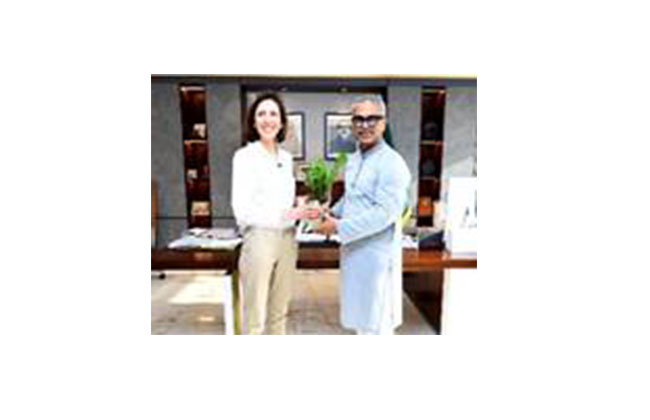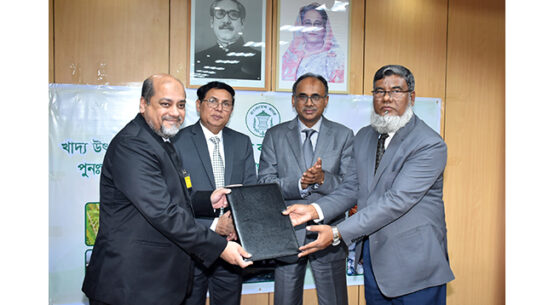
The Bangladesh Garment Manufacturers and Exporters Association (BGMEA) has requested the European Union to extend its trade facilities under the GSP scheme for six more years instead of three years.
The BGMEA said it would support Bangladesh in graduating smoothly from the LDC category and continuing the country’s development journey in the coming years.
BGMEA President Faruque Hassan made the call during a meeting with Valérie Hayer, Member of the European Parliament, held at BGMEA Complex in Uttara, Dhaka on Thursday, reads a press release.
Issues including bilateral trade, LDC graduation and its implications on Bangladesh’s trade and economy, the current situation of the RMG industry and its prospects and challenges were discussed in the meeting.
They had also discussions about the proposed EU GSP scheme for 2024-2034 and how it would impact Bangladesh’s trade preferences in the EU market under GSP+ after LDC graduation.
Faruque said the specified EU ‘safeguards’ in the proposed provisions of GSP scheme would exclude Bangladesh’s RMG exports from any tariff preferences though the country is likely to qualify for GSP+ after its LDC graduation.
It would negatively impact the competitiveness of Bangladesh’s RMG industry which is the source of livelihood for millions of people, he said.
Moreover, as the major export sector, the RMG industry is vital for propelling the economic growth of Bangladesh.
Given the huge importance of the apparel sector in Bangladesh’s socioeconomic development, the BGMEA President underscored the need for continued support from the EU especially in terms of preferential market access for export sectors including the RMG industry, even after the LDC graduation.
He also urged the EU to waive the safeguard textile threshold criteria or redesign the mechanism for Bangladesh in the proposed GSP scheme, allowing the country to reap benefits from GSP Plus after the LDC graduation.
The BGMEA President expressed thanks to the EU for allowing Bangladesh duty-free access to the European market, saying the trade preference under the GSP scheme had helped the RMG industry to secure a strong position in the apparel market and create employment of millions of people, mostly women in Bangladesh.
He apprised Valérie Hayer of the vast progress made by Bangladesh’s RMG industry in the areas of workplace safety, environmental sustainability and workers’ rights and welfare.
Faruque Hassan also briefed the European Parliament Member about the industry’s strides in a circular fashion along with a strong focus on product diversification and technological up-gradation to build up strengths in sustainable garment manufacturing.
He apprised Valérie Hayer of the vast progress made by Bangladesh’s RMG industry in the areas of workplace safety, environmental sustainability and workers’ rights and welfare.


